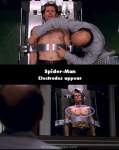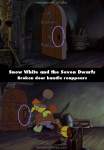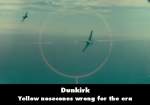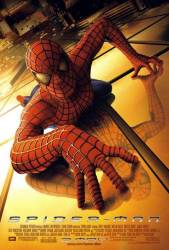
Continuity mistake: When Norman is getting ready to test himself, he lies down on the bed, fastens himself in and the doctor goes to the computer. However, when it shows him being brought in to the chamber he has several electrodes connected to his chest and head. (00:15:20)
Suggested correction: At first the electrodes are beside Norman's head. While the doctor is fixing him in place, at one point camera focuses on his face. Later when he's stepping back for the PC, the electrodes can actually be seen stuck on his body. You can see them if you have an HD copy. So the camera focusing on his face is indicating that the doctor's doing whatever necessary for the process.
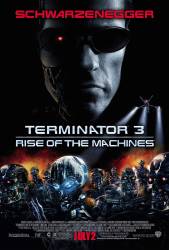
Continuity mistake: When John and Catherine are in the hangar at the runway, the Cessna's tail number is N3035C. When the plane is shown in the air, the number is N3973F. When they land, the tail number has changed back to N3035C. (01:22:25 - 01:25:50)
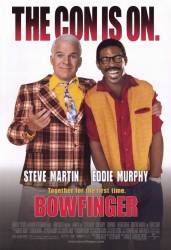
Factual error: The whole Bowfinger scenario is impossible. They are using a 35mm Panavision cine camera which cannot be focused through the lens; it needs precise measurements on the set in order to be properly in register. Then there are the light readings required to ensure proper exposure. Wouldn't Kit Ramsay notice the man with the light meter, or the one with the tape recorder? Both measurements would have to be done with him or an identically dressed and made up stand-in (a "lighting double") on the spot. Then there is the sound. Any sound recordist worth his salary will have the microphone within centimetres of his subject, and he'll have a boom operator keeping in there. We don't even see a microphone in use! Please don't tell me this is based on the clandestine filming of Mary Pickford during her Russian visit: that was done with old black and white film which has very wide tolerance to exposure and most of all it was silent, and she was aware of the camera crew, she just thought they were news crews. (And the results were rubbish anyway).
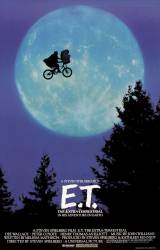
Continuity mistake: In the exterior front shots of Elliott's house there are some significant changes to the landscape in different shots. For instance, the two lampposts at the bottom of the driveway change to an entirely different style in some shots, and the huge garden boulders repeatedly vanish and reappear. Also, note when Michael takes off on Elliott's bike to go search for ET, the in-ground lamppost that should be beside the mailbox has vanished, but it reappears when all the government agents are setting things up outside the house.

Plot hole: The idea that Marlow would simply take a taxi to his wife's address after being missing in action for thirty odd years is stupid beyond belief. He was on a ship sailing from the central Pacific for days and those ships have radios! The US military would have known he was coming. Someone, somewhere would have notified the authorities that a US serviceman long thought dead was actually alive and on his way home and his wife and son would have been there on the docks to greet him, not standing slack-jawed in the kitchen dropping trays of drinks on the floor when he turned up! What would have happened if she had remarried? Or moved house? Or she was dead? Don't tell me the US military didn't know he was coming - he is wearing a brand new uniform, clean and pressed.
Suggested correction: The implication is that Marlow went through an extensive debrief and nobody had contacted his family until the debrief had concluded, based on the top secret nature of the mission. As you say, the fact he has a brand new uniform suggests that he has contacted the US Military prior to ever contacting his family. The fact that his wife would have moved and re-married is irrelevant, he still would have made an attempt to contact her so he could see his son.
And they wouldn't have contacted her after the debrief had been completed? What utter nonsense. Allowing him to just turn up on the doorstep without notifying his wife first is an utterly irresponsible and even dangerous act. She could have fainted with shock or even had a heart attack. She would absolutely, definitely, 100% carved in stone, been advised of her husband's survival and return.
Since we know very little about the completely fictional organization Monarch, we obviously cannot say they would "carved in stone" do anything. In order to be a mistake in the movie, it would have to be something that is impossible. A secret government organization that doesn't even exist in real life not behaving the way the real military would is not impossible. At least not by the rules set forth in the film. It's perhaps improbable but it is most certainly not impossible.
It is an inviolable, carved in stone, fur lined, ocean going, top of the list rule that the next of kin are immediately advised of the change of status of military personnel. MIA, now confirmed dead? They'd be the first to know. MIA, now confirmed to be alive, same outcome. His wife would know he was on that ship coming home.
This is true in real life but in the fictional world of the movie Monarch is a secret, government agency that has some degree of control over the military. You can't apply the same rules as in real life in this situation.

Continuity mistake: When the seven dwarves run scared down the stairs and out of the door, Dopey pulls the handle of the door from the inside until it breaks out and falls away. The next scene when the dwarf opens the door, the handle is there again. (00:33:00)

Deliberate mistake: The Messerschmitts have painted yellow fronts, this wasn't done by the Germans until after Dunkirk. Christopher Nolan has admitted doing this deliberately so the audience could tell the difference between the Spitfire and the Messerschmitt during the combat scenes.

Visible crew/equipment: After burning the car, when Dave takes the trash out there is a camera operator at the end of his driveway. (01:11:00)

Revealing mistake: When Carl is being dragged away by the demons, you can see the cable line that he's attached to. May be fixed on DVD.
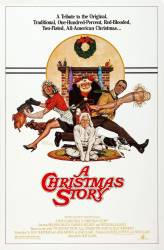
Continuity mistake: When Melinda Dillon breaks the lamp, it is broken into many pieces, but when Darren McGavin is gluing it back together it is now in much fewer and bigger broken pieces. Obviously different broken lamps were used.
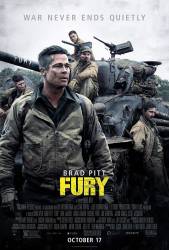
Continuity mistake: Wardaddy raises his cigarette lighter to his cigarette twice while he speaks to Norman after the town has been taken. (00:51:30)
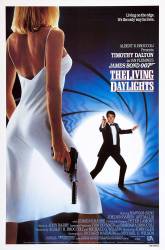
Plot hole: Necros had absolutely no way of knowing that Bond and Saunders had arranged to meet at the café when they did and wouldn't have had anywhere near enough time to track them down and set up his elaborate booby trap. Saunders only suggested the meeting place and time a few hours earlier, and it was kept strictly between him and Bond. The scene in Tangier, where Whittaker tells Necros to kill another British agent, takes place on the same day Bond arrived in Vienna; meaning that Necros got from Tangier to Vienna (a 5-hour plus flight), tracked down Saunders, acquired the materials to booby trap the café doors (or had planned this ahead of time - unlikely), and set the trap up well in advance of him and Bond getting to the fairground. There was nowhere near enough time for all of that to happen without Necros having psychic knowledge of Saunders' movements.
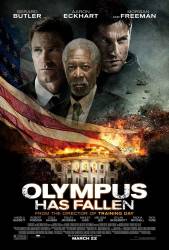
Plot hole: The fact that a five minute timer starts after the three Cerberus codes are entered defeats the purpose of the program. If they program was made to destroy their own nuke warheads in case of a misfire you would expect them to be destroyed as soon as all three codes are in. (01:38:20)
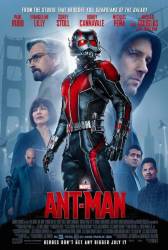
Factual error: Twice in the film it is made clear that the Pym particle works by reducing the space between atoms in order to shrink an object, and by increasing it to enlarge them. This means that the object will weigh the same, whether shrunk or enlarged - it cannot be otherwise. A 90kg man the size of an ant would punch a hole through any surface upon which he stood (and couldn't ride ants), Doctor Pym has been walking about with a 60 tonne tank in his pocket, Darren Cross lifts a full grown sheep between finger and thumb, and the supersized Thomas The Tank Engine would be far too light to crush the police car (in fact it would float harmlessly away as it would probably weigh less than the air it displaced).
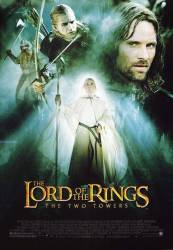
Continuity mistake: Gimli is lying with his face under the water, after jumping off the Deeping Wall and landing on the Uruk-hai. In the close-up, the right arm that grabs Gimli's shoulder to help him out of the water is Legolas' right arm. Yet, in the wide shot, suddenly it is Aragorn helping Gimli to his feet, not Legolas. (01:11:10)
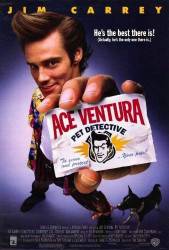
Other mistake: When Ace rescues the dog and replaces it with a toy dog, the toy dog is in an impossible position. Ace had to place it there when the door was still open, but if the door was closed after that the man would have knocked it over. (00:03:25)
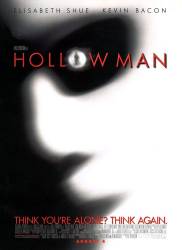
Plot hole: Why on earth would the military be interested in a soldier (pilot, sailor, marine, whatever) who has to go into combat naked and unarmed, and who is detectable by an enemy equipped with a pair of cheap, mass-produced goggles? How would you treat them if they were injured? They would be utterly useless in any form of military operation, even espionage.
Suggested correction: Presumably the military are interested because Sebastian's research could lead to advanced forms of invisibility technology, such as the ability to turn materials and weapons invisible for use in combat.
You cannot second guess the film like that. Sebastian is making no effort to make non-living items invisible and throughout the film we see that is not possible (why else would Sebastian have to walk about naked?). His research is on animals (and later humans) not "materials and weapons" and is based on their physiology, anatomy and metabolism. How would you inject a rifle or a tank with a serum? They don't have a bloodstream. The military wouldn't see any value at all in this research - maybe they would be interested in invisibility, but not if it was restricted to living creatures as we see here.
You know how easy it would be for an invisible person to infiltrate an enemy's compound undetected and take out powerful leaders or dictators? Especially if no-one knew the technology existed.
Easy? Impossible. First, they would be naked and unarmed. Too bad if you are trying to knock off Vladimir Putin - a taekwondo black belt - with your bare hands during a Moscow winter! Being invisible doesn't mean you can avoid making a sound or triggering a pressure plate or an infrared detector and so on and so on. Final answer - a naked, unarmed combatant would be about as useful as a chocolate teapot in any form of operation, covert or otherwise.
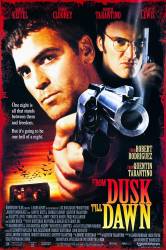
Continuity mistake: Throughout the entire film the tattoo on George Clooney's neck moves position and changes shape.
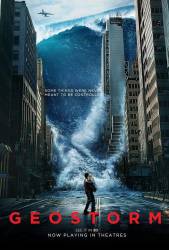
Character mistake: Jim Sturgess uses a sentence that contains the word 'me'. He is corrected, being told that the word 'I' would have been correct. However, he was grammatically correct in his use of the word 'me'. The correction was in error.

Continuity mistake: When they finally arrive at the bottom of the sewer, Eddie's bandage is on a different cheek. (01:59:00)
